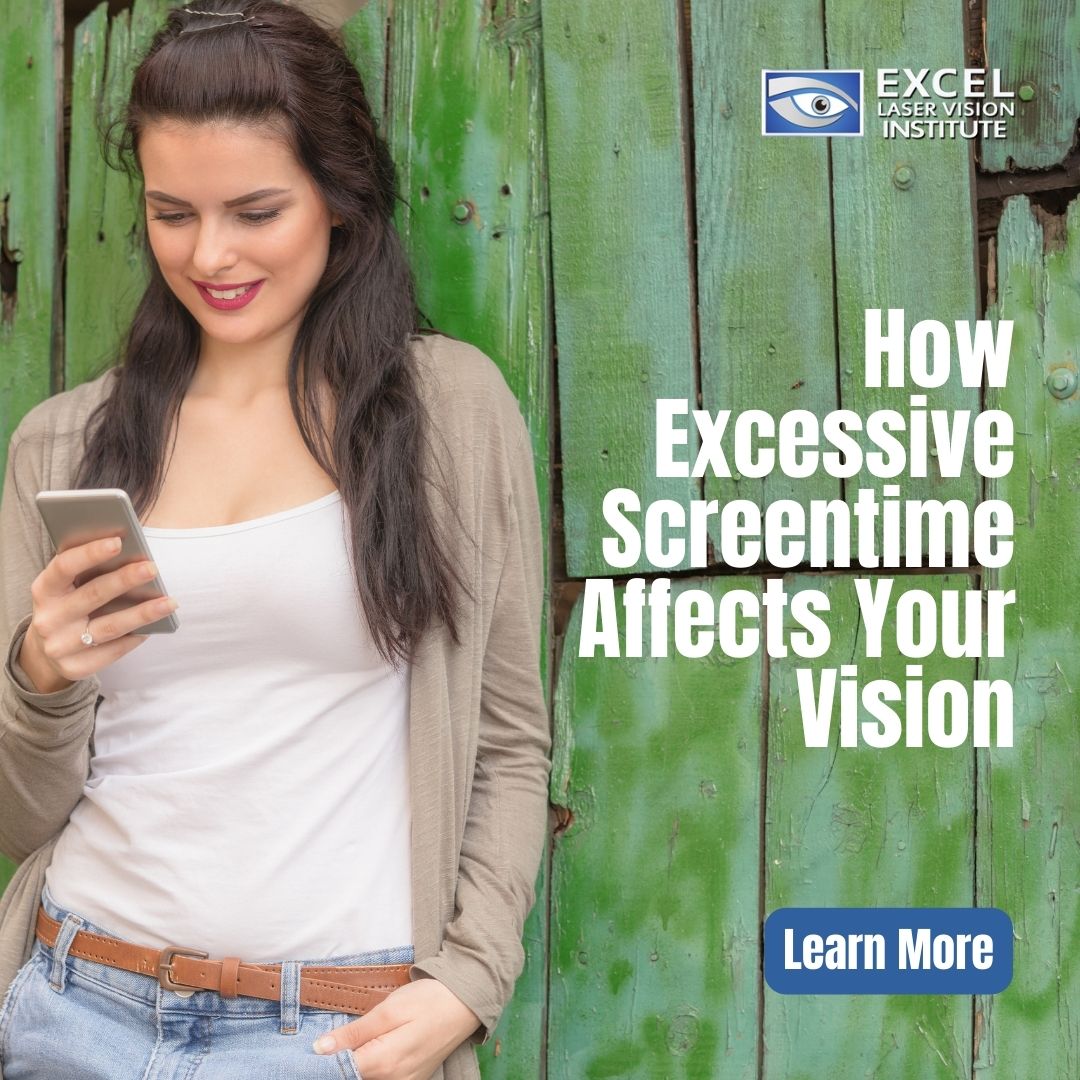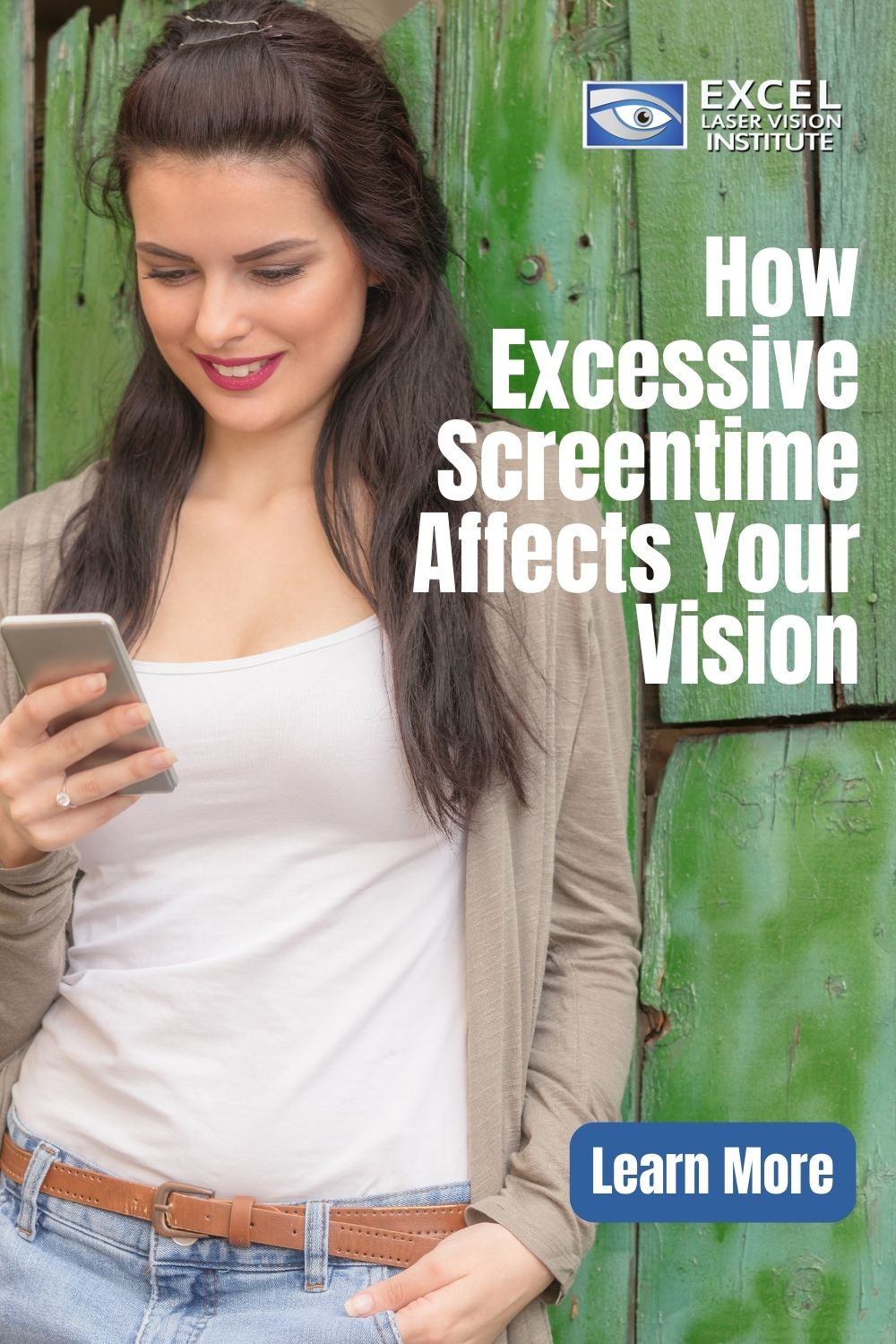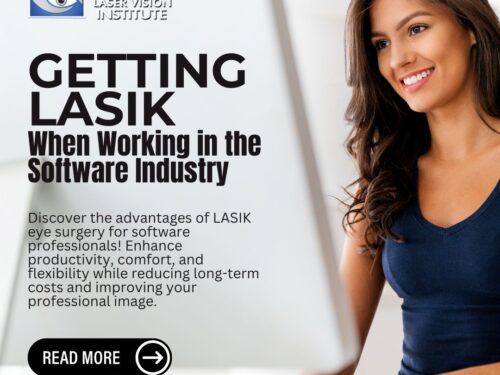
With the widespread use of digital devices such as computers, tablets, and smartphones, concerns about the impact of computer screens on our eyes have increased considerably. The human eye is not naturally designed to stare at screens for prolonged periods. The high energy visible (HEV) light, also known as blue light, emitted by these screens can cause ocular problems. This includes digital eye strain (computer vision syndrome), characterized by symptoms such as dryness, irritation, blurred vision, and headaches. Over time, prolonged exposure to irritating blue light can also contribute to risk of developing conditions such as age-related macular degeneration.
A Closer Look at the Effects of Computer Screens
The mechanism behind these effects involves the way our eyes process light. Light is essential for our vision, but our eyes are more susceptible to blue light due to its shorter wavelength and higher energy. When we focus on digital screens for an extended period, excessive exposure to blue light may cause oxidative stress on the retina. This is because the human eye is not very efficient at blocking blue light, and most of it reaches the light-sensitive retina, potentially leading to long-term damage.
Furthermore, focusing on digital screens can disrupt the natural blink reflex, leading to dry, irritated eyes. When we stare at screens, we blink less, causing less natural lubrication and resulting in dry eye syndrome.
See related blog here: https://www.exceleye.com/2023/03/30/dangers-of-screen-devices-and-benefits-of-lasik/
How Can LASIK Help?
LASIK in Orange County, or laser-assisted in situ keratomileusis, is a refractive eye surgery designed to correct vision problems like myopia, hyperopia, and astigmatism. While LASIK can correct these vision disorders, which may be exacerbated by excessive screen time, it does not directly address the impact of computer screens on our eyes. It’s important to note that LASIK corrects how light is focused onto the retina but does not alter the retina’s exposure to blue light from screens.
That being said, people who have had LASIK eye surgery may find their screen time more comfortable without the need for corrective lenses, and if pre-existing vision problems were contributing to eye strain, this could alleviate the issue. Also, those with corrected vision may find it easier to employ other strategies to reduce screen-related eye strain, such as maintaining an appropriate distance from the screen, adjusting screen brightness, or enlarging text size.
In short, LASIK eye surgery can help you deal with screens if you’re pre-disposed to issues with it, but you still need to take care of your eyes even after LASIK to prevent damage again.
Understanding Blue Light and Its Sources
Apart from digital screens, it’s worth noting that blue light is not exclusive to our devices. The sun is the primary source of blue light, and it’s essential for regulating our circadian rhythms, mood, and overall alertness. However, the amount of blue light exposure from the sun far exceeds that of screens. Other artificial sources include LED lights and fluorescent bulbs. The problem with digital screens is the proximity and the duration for which we expose our eyes to them.
See related blog here: https://www.exceleye.com/2023/07/24/what-does-excessive-blue-light-do-to-your-eyes/
Why are our eyes so susceptible to blue light?
One may wonder why blue light from screens affects our eyes more than other light spectrums. The human lens and cornea are good at blocking UV rays, which is why less than one percent of UV rays from the sun reach our retina. However, virtually all visible blue light passes through them and gets to the retina. Our continuous exposure and close proximity to screens amplify the impact of this light on our eyes.
Benefits of Reducing Screen Time
Apart from ocular health, reducing screen time can also improve your overall well-being. Continuous screen use, especially before bedtime, can interfere with our sleep patterns. The blue light suppresses melatonin, a hormone responsible for regulating sleep. Less exposure in the evening can result in better sleep quality. Moreover, prolonged screen time can also contribute to a sedentary lifestyle, which can lead to various health issues. It’s always advisable to balance screen use with physical activity.
Alternative Solutions for Screen-Related Eye Strain
There are other solutions beyond LASIK and blue-light-filtering eyewear that can help reduce the detrimental effects of prolonged screen time:
20-20-20 Rule: For every 20 minutes spent looking at a screen, one should look at something 20 feet away for at least 20 seconds. This simple technique can reduce fatigue.
Adjusting Screen Settings: Ensuring that the brightness of the screen matches the surrounding illumination can help. Screens should not be too bright or too dark.
Proper Positioning: Screens should be just below eye level and about an arm’s length away. This position helps reduce the strain on your neck and eyes.
Regular Eye Exams: Regular eye check-ups can ensure that your prescription, if you have one, is up to date. An outdated prescription can increase screen-related eye strain.
The Future of Digital Interactions
As technology continues to evolve, so will our interaction with digital platforms. Companies are now exploring screens that emit less blue light and software solutions that automatically adjust the hue based on the time of day. Until then, it’s in our hands to use screens judiciously.
By integrating these additional insights into the dangers and mitigation strategies for blue light exposure, we can ensure a comprehensive understanding for the reader, emphasizing the importance of a balanced digital life.
Conclusion
In conclusion, while the impact of computer screens on our eyes can be detrimental, Orange County LASIK eye surgery is not a direct solution. However, it can help by correcting underlying vision issues that might be aggravated by screen use. If you feel like you have any of these underlying vision issues, consider visiting a specialist at Excel Eye to see if you’re a qualified candidate for laser eye surgery in Orange County.
Individuals still need to manage their screen time effectively and take regular breaks to give their eyes a rest, along with considering the use of blue-light-filtering eyewear or screen covers to mitigate the harmful effects of prolonged digital screen exposure. It’s important to take good care of your eyes because not even LASIK can protect you from the effects of age-related vision problems excessive screentime will inevitably give you!




